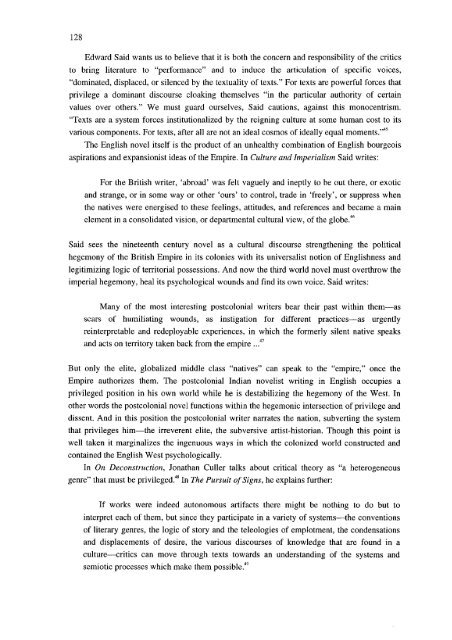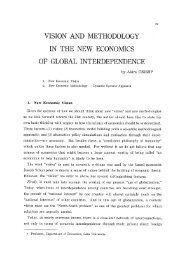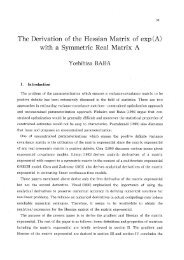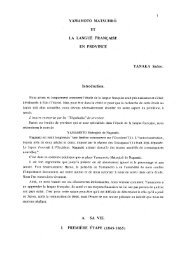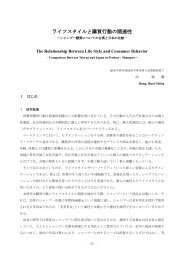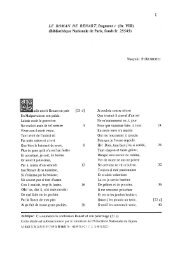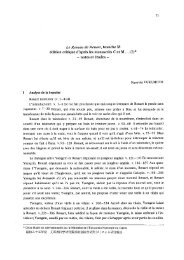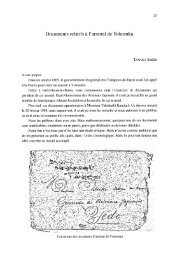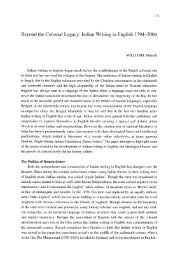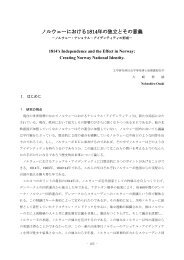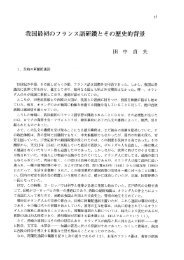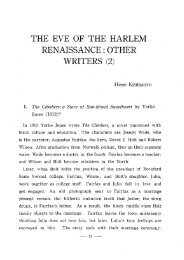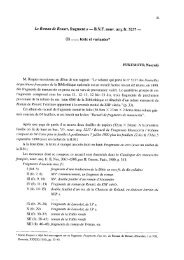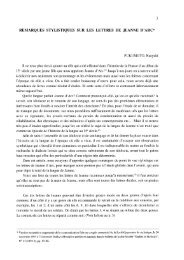New Historicism and Literary Studies - Soka University Repository
New Historicism and Literary Studies - Soka University Repository
New Historicism and Literary Studies - Soka University Repository
Create successful ePaper yourself
Turn your PDF publications into a flip-book with our unique Google optimized e-Paper software.
128<br />
Edward Said wants us to believe that it is both the concern <strong>and</strong> responsibility of the critics<br />
to bring literature to "performance" <strong>and</strong> to induce the articulation of specific voices,<br />
"dominated<br />
, displaced, or silenced by the textuality of texts." For texts are powerful forces that<br />
privilege a dominant discourse cloaking themselves "in the particular authority of certain<br />
values over others." We must guard ourselves, Said cautions, against this monocentrism.<br />
"Texts are a system forces institutionalized by the reigning culture at some human cost to its<br />
various components. For texts, after all are not an ideal cosmos of ideally equal moments."45<br />
The English novel itself is the product of an unhealthy combination of English bourgeois<br />
aspirations <strong>and</strong> expansionist ideas of the Empire. In Culture <strong>and</strong> Imperialism Said writes:<br />
For the British writer, `abroad' was felt vaguely <strong>and</strong> ineptly to be out there, or exotic<br />
<strong>and</strong> strange, or in some way or other `ours' to control, trade in `freely', or suppress when<br />
the natives were energised to these feelings, attitudes, <strong>and</strong> references <strong>and</strong> became a main<br />
element in a consolidated vision, or departmental cultural view, of the globe.46<br />
Said sees the nineteenth century novel as a cultural discourse strengthening the political<br />
hegemony of the British Empire in its colonies with its universalist notion of Englishness <strong>and</strong><br />
legitimizing logic of territorial possessions. And now the third world novel must overthrow the<br />
imperial hegemony, heal its psychological wounds <strong>and</strong> find its own voice. Said writes:<br />
Many of the most interesting postcolonial writers<br />
scars of humiliating wounds, as instigation for<br />
reinterpretable <strong>and</strong> redeployable experiences, in which<br />
<strong>and</strong> acts on territory taken back from the empire ...47<br />
bear their past within them—as<br />
different practices—as urgently<br />
the formerly silent native speaks<br />
But only the elite, globalized middle class "natives" can speak to the "empire," once the<br />
Empire authorizes them. The postcolonial Indian novelist writing in English occupies a<br />
privileged position in his own world while he is destabilizing the hegemony of the West. In<br />
other words the postcolonial novel functions within the hegemonic intersection of privilege <strong>and</strong><br />
dissent. And in this position the postcolonial writer narrates the nation, subverting the system<br />
that privileges him—the irreverent elite, the subversive artist-historian. Though this point is<br />
well taken it marginalizes the ingenuous ways in which the colonized world constructed <strong>and</strong><br />
contained the English West psychologically.<br />
In On Deconstruction, Jonathan Culler talks about critical theory as "a heterogeneous<br />
genre" that must be privileged.48 In The Pursuit of Signs, he explains further:<br />
If works were indeed autonomous artifacts there might be nothing to do but to<br />
interpret each of them, but since they participate in a variety of systems—the conventions<br />
of literary genres, the logic of story <strong>and</strong> the teleologies of emplotment, the condensations<br />
<strong>and</strong> displacements of desire, the various discourses of knowledge that are found in a<br />
culture—critics can move through texts towards an underst<strong>and</strong>ing of the systems <strong>and</strong><br />
semiotic processes which make them possible.49


